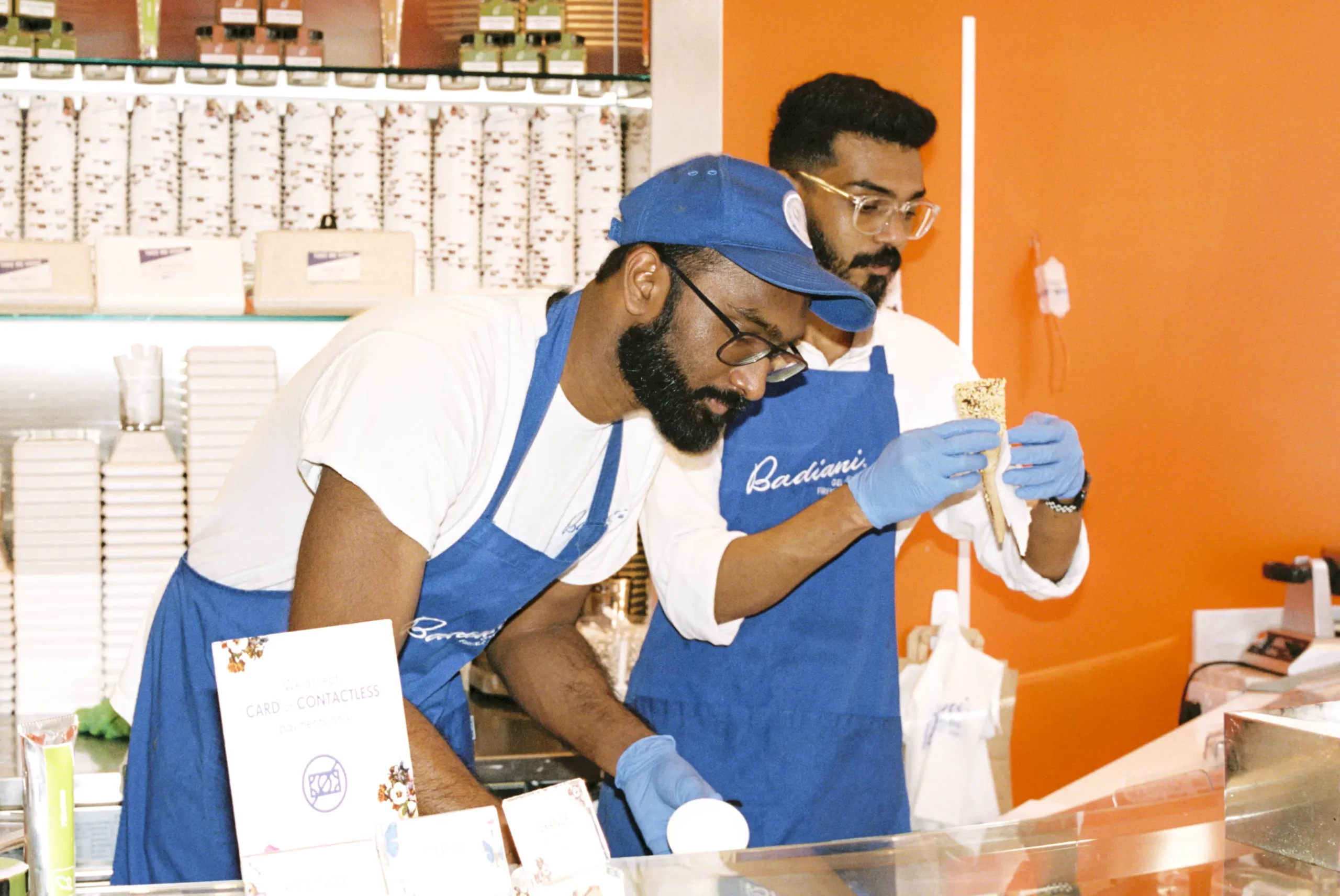When you’re in the throes of tough market conditions, your first instinct is to pull back, right?. Limit budgets, cut costs, and stop spending valuable funds on unnecessary things.
However, developing a strong restaurant growth strategy in these times can be a game-changer. While the market’s in a downturn, everyone else is likely pulling back too. This approach provides you with a unique opportunity to implement a restaurant growth strategy that sets you apart.
What does this mean for you?
It means you have an opportunity.
When things are slowing down, you can speed up. You can open new venues at a lower rate, access prime locations, and gain a larger market share while everyone else is reigning in their plans for growth.
Don’t get us wrong — expanding in a recession isn’t right for everyone, and the circumstances vary from restaurant to restaurant. But research shows that making bold, strategic decisions in tough conditions can be the key to success.
If you’re in a position to do so, we’ve outlined some of the ways to create a restaurant growth strategy in a tough time.
6 reasons why focusing on growth is the best strategy during tough trading conditions
Persistent inflation, rising interest rates, and regulatory changes (like the minimum wage increase) are impacting the hospitality industry. In 2022, restaurant insolvencies hit their highest level in a decade.
But despite the financial uncertainties, optimism is high. More restaurants are reporting a higher turnover than failing, and the percentage of UK restaurants making a profit has doubled from 2022 to 2023.
What does this tell us?
With the right planning and an eye for opportunity, you can grow your restaurant business in spite of market volatility. To start on the right foot, here are some growth-boosting strategies to help you outperform competitors during tough market conditions.
1. Access prime venues with less competition
Restaurant brands are shutting up shop. The Restaurant Group (which owns restaurant chains like Wagamamas and Frankie and Benny’s) is set to shut 35 restaurants over the next few years to boost their profits.
But if you’re able to expand, this is a really great opportunity. Why? Because you have access to a wider choice of restaurant venues at a lower price. In fact, prices will probably be the cheapest they’ve been in years — including those in prime locations.
And the better location you have for your restaurant, the more successful it’s likely to be. Think about it — a restaurant that gets a lot of foot traffic in a popular area has a better chance of success than a restaurant that’s tucked away from passers by.
Plus, when less people are looking for new venues, you have less people to compete with, so your chances of landing top locations are much higher. 👏
2. Get better lease terms
In a challenging market, landlords may be willing to negotiate favourable lease terms. After all, a negotiated lease term is better than no lease term at all, right?
What we’re trying to say is that you have leverage when demand is low.
Don’t be afraid to negotiate for what you want to get the best possible deal for your restaurant. This can include lower rent rates, flexible lease terms, or incentives that support your financial viability during tough economic conditions.
And don’t forget — these units will be pre-fitted with interiors and kitchens. Instead of starting from scratch, you can use what’s already there, meaning your capital expenditure (capex) is much lower. It’s a win-win.
3. Negotiate favourable supplier agreements
Suppliers may also be happy to negotiate better terms in tough market conditions. They’re aware of the challenges in the market, and are experiencing some of their clients pulling back or cancelling contracts altogether.
Once again, you have leverage.
You might negotiate longer payment periods without incurring additional charges. For example, settling invoices in 45 or 60 days instead of the standard 30. Or perhaps you’ll explore the possibility of early payment discounts, helping you save money and improve the supplier’s cash flow at the same time.
All of these negotiations can bring your costs down, improve your cash flow, and streamline your operational efficiency.
4. Agree to shorter investment payback periods
In a tough market, investors and lenders may be open to shorter payback periods. The more flexible they are, the more likely they are to secure buyers.
So what does this mean for you?
It means that the years it takes to be paid pack on the money you spend will be less than previous years. In other words, you can recoup your initial investments more quickly, reducing financial risk and providing a faster path to profitability.
5. Build a higher market share
With less competition on the scene, it’s easier to become a dominant player in the industry.
Think about it — people are far more likely to visit your restaurant when there are fewer options to choose from.. As a result, you’ll start to gain more market share. And as your market share grows, so does the influx of customers. It’s a virtuous cycle.
Coupled with strategic growth initiatives (like digital marketing campaigns), you can keep riding this wave to attract more customers and take a larger chunk of the market.
This also means that when the industry improves in the future, you’re already one step ahead of the competition. 🥳
6. Adapt to changing consumer habits
Consumer habits can shift during recessions. Think about the pandemic as an example. With everyone being forced to stay home, online delivery and at-home meal kits became popular.
Some hospitality businesses changed their set-up to meet these new customer needs. But those that couldn’t overcome these operational challenges? They struggled to make it through, if they even made it at all.
So, take note of what consumers are looking for. Perhaps because the economy isn’t doing so well, people are looking for something quick and cheap instead of a dine-in experience? With your new venue, you could cater to these preferences.
This can help you appeal to a wider customer base, meet customer demand, and boost your competitive advantage.
Are tough market conditions the best time to push a restaurant growth strategy?
Let’s not beat around the bush — industry recessions are tough. But if you play your cards right, tough market conditions can be a catalyst for strategic growth. Smart decision-making and capitalising on opportunities can position your restaurant for long-term success, even in turbulent times.
The market is expected to hold relatively firm next year. Have confidence in your model, and use our investment calculator below to determine your payback period and what’s affordable in terms of growth (simply input your figures into blue fields – the rest is auto-calculated).
You’ll also need to equip yourself with the right tools to succeed in a recession. This means using platforms that give you real-time access to your financial performance, like Nory. Use our restaurant management platform to access real-time data and analyse your financial performance at a single glance.
Book a call with the team to find out more about how it works!
FAQs about how to survive a recession
Do restaurants do well in a hospitality industry recession?
Performance varies based on several factors, including the severity of the economic downturn, consumer behaviour, and the type of restaurant. Generally, the restaurant industry faces challenges as costs go up and consumers cut back on discretionary spending. However, with the right planning, effective tools in place, and an understanding of the opportunities available, restaurants can thrive in tough market conditions.
How does a recession affect the hospitality industry?
There are a lot of different ways a recession can impact restaurant industry growth. Some of the common culprits include consumers dining out less, interest rates flaring up, changing competitive dynamics, and increasing food costs. But there can also be positive impacts on the hospitality industry during a recession. Better lease terms, agreeing shorter investment pay-back periods, and access to high-value venues at a lower price are some of the main benefits.
Don’t be shy – schedule a call!

